 Petzlover
Petzlover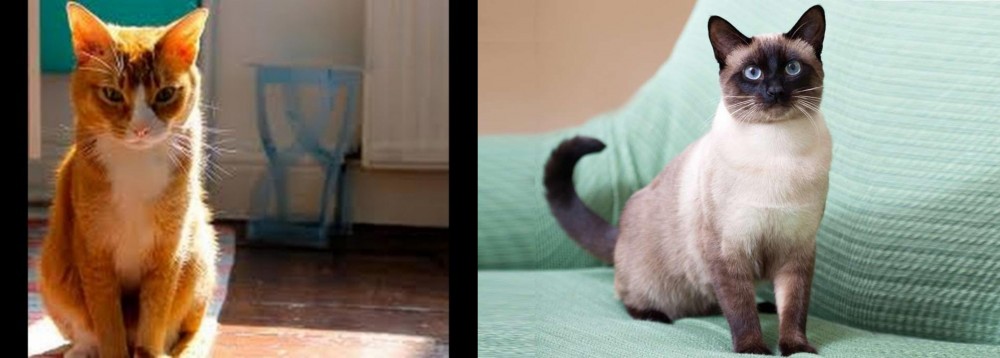 Chausie is originated from Egypt but Traditional Siamese is originated from Thailand. Both Chausie and Traditional Siamese are having almost same weight. Chausie may live 4 years less than Traditional Siamese. Both Chausie and Traditional Siamese has same litter size. Chausie requires Low Maintenance. But Traditional Siamese requires Moderate Maintenance
Chausie is originated from Egypt but Traditional Siamese is originated from Thailand. Both Chausie and Traditional Siamese are having almost same weight. Chausie may live 4 years less than Traditional Siamese. Both Chausie and Traditional Siamese has same litter size. Chausie requires Low Maintenance. But Traditional Siamese requires Moderate Maintenance
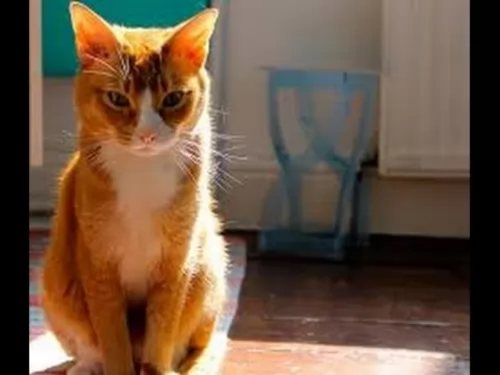 The Afro-Chausie came about from breeding a few individuals from a species of jungle cat which was native to India, Asia and the Middle East. In other words, this is a cross between a wild cat and a domesticated cat.
The Afro-Chausie came about from breeding a few individuals from a species of jungle cat which was native to India, Asia and the Middle East. In other words, this is a cross between a wild cat and a domesticated cat.
It was only in 1995 that the Chausie was recognized as a domestic breed, and by the International Cat Association.
The Chausie breed essentially began in the 1990s, when breeders name the breed Chausie and also developed a breeding program. They received registration status in 1995. Chausies are bred in North America and Europe and in 2003 became a new breed in the United States.
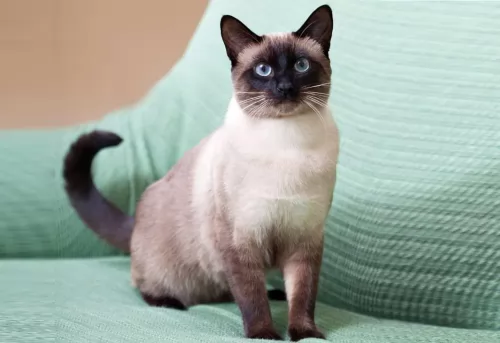 There are now three types of Siamese cats. The Traditional Siamese is said to be the original cat imported from Thailand.
There are now three types of Siamese cats. The Traditional Siamese is said to be the original cat imported from Thailand.
The Classic was the type that was common in the 50’s, 60’s and 70’s. The original Siamese cat became one of the most popular breeds in Europe and North America in the 19th century.
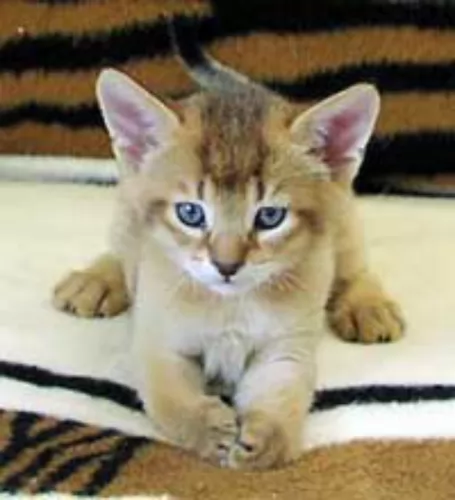 The Chausie is a medium to large cat with a long body and long legs. In fact, the hind legs are somewhat longer than their front legs, and they’re able to easily leap into the air and up onto high perches. Some people say these cats look like Pumas.
The Chausie is a medium to large cat with a long body and long legs. In fact, the hind legs are somewhat longer than their front legs, and they’re able to easily leap into the air and up onto high perches. Some people say these cats look like Pumas.
The adult Afro-Chausie can weigh between 5 to 9kg and they stand in height from 35cm to 45cm and sometimes taller, both male and female.
The ears of the cat are broad and tall and the almond-shaped eyes are a yellow to green shade. The TICA Chausie breed standard says that the cat comes in 3 colors – a black/brown ticked coats, solid black and black grizzled tabby, but in fact, they come in quite a few other colors and patterns too.
Your Afro-Chausie is an intelligent, loyal, social and athletic cat that is also playful. They love their human companions and will form a deep bond with them, making it difficult to rehome him later on.
They don’t like being alone, in fact to such an extent that they will befriend dogs in the home too. This is such an active cat and you can even train him to walk on a leash.
It’s a cat that also loves water and Similar to Bengals and Savannahs, this breed, too, enjoys water. This cat will form deep bonds with owners, hence rehoming has been known to be particularly challenging with this breed
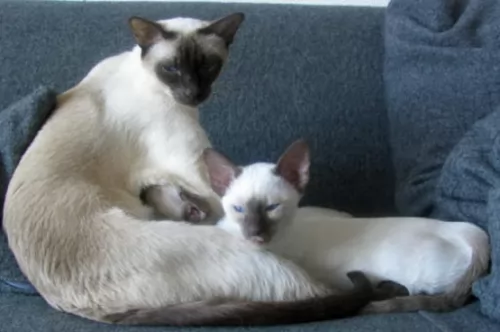 The Traditional Siamese cat is medium-sized, lean, and muscular and weighs between 3 and 6kg. The coat is short and he is considered a medium shedder.
The Traditional Siamese cat is medium-sized, lean, and muscular and weighs between 3 and 6kg. The coat is short and he is considered a medium shedder.
The kittens of these cats are born white and the coloring comes in over the next days and weeks. The head of the Traditional Siamese is well proportioned to its body size.
The medium size ears are slightly rounded at the tip and the eyes are large and bright blue in color.
The coat is short, sleek, and soft and accepted colors are cream with chocolate, brown, lilac, red, tortie or blue points.
The personality of the Traditional Siamese is loud, vocal, and demanding. These cats let you know precisely what they want and it is almost like having a human companion in the house.
They love to give their human owners lots of attention as well. They’re intelligent, curious, playful, and energetic.
The Traditional Siamese cat isn’t really recognized by the Cat Fanciers Association (CFA) anymore as the breed’s temperament has changed so much.
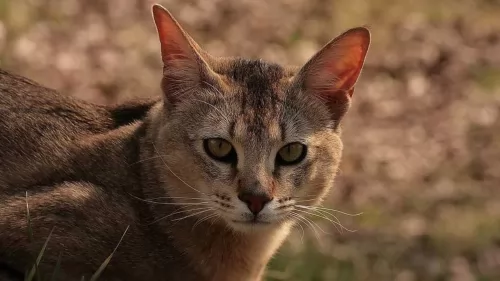 The Chausie loves human contact and they love games with their human family.
The Chausie loves human contact and they love games with their human family.
They’re intelligent and are constantly looking for things to do. They are athletic and have plenty of energy. They’re social, playful and make great playmates for children who have been taught to respect animals.
When you bring an Afro-Chausie into your home, you can expect to have a lot of action and entertainment with this beautiful cat.
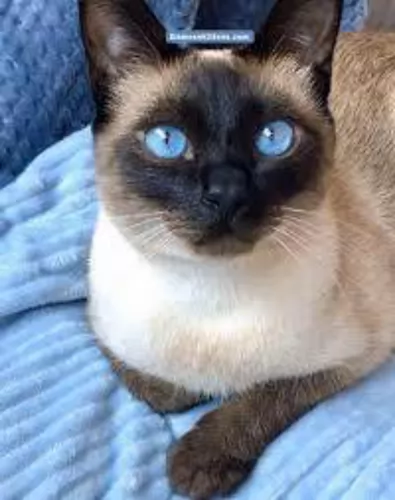 The Traditional Siamese cat is such an amazingly intelligent animal and sometimes they can become quite human.
The Traditional Siamese cat is such an amazingly intelligent animal and sometimes they can become quite human.
These are not your traditional cool, independent, sleep all day kind of felines and people liken them to having a dog as a pet. They love to play, and they are so active you could even put a leash on one and take it for a walk.
They are energetic, local, and lively. They are such affectionate cats too and they get on well with children and with other pets.
When you bring a Traditional Siamese cat into your life, it is like you are bringing in a human companion, except that the Traditional Siamese is far more amicable than many humans.
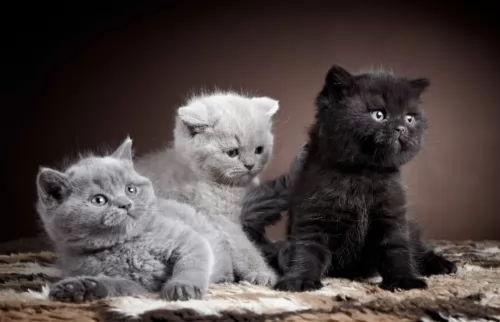 With good health, your Afro Chausie can live to be anything between 12 – 16 years of age. These cats are prone to developing food allergies, and this is why it is important to feed your Chausie high-quality food.
With good health, your Afro Chausie can live to be anything between 12 – 16 years of age. These cats are prone to developing food allergies, and this is why it is important to feed your Chausie high-quality food.
They’ve got fragile digestive systems and many are gluten intolerant.
All kinds of parasites can invade your Afro-Chausie’s body – internally and externally so be sure to have your Chausie checked over for parasites such as tick and fleas, worms and mites.
Check your Chausie for putting on too much weight as these cats have a huge appetite.
You just have to bear in mind that these cats can develop any of the illnesses that other domesticated cats get
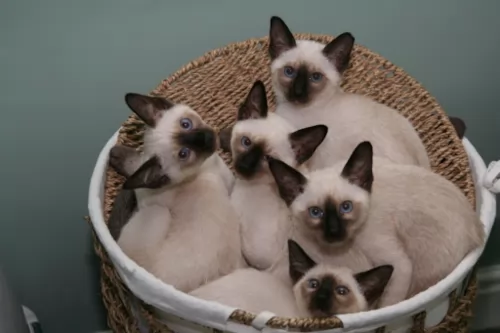 Avoid obesity. Siamese cats are prone to obesity and these slim cats can’t afford weight gain. Extra weight can put a whole lot of pressure on the cat’s joints and they can also develop other problems such as diabetes. The label of the commercial cat food you give your Traditional Siamese will indicate how much food your cat should get a day based on your cat’s weight.
Avoid obesity. Siamese cats are prone to obesity and these slim cats can’t afford weight gain. Extra weight can put a whole lot of pressure on the cat’s joints and they can also develop other problems such as diabetes. The label of the commercial cat food you give your Traditional Siamese will indicate how much food your cat should get a day based on your cat’s weight.
Diet plays a massive role in the health of a cat, and inferior cat foods can mean you spending more money at the vet because of digestive issues.
If you are in any kind of doubt as to what to feed your cat, rather speak to your vet about what and how much to feed him. Your cat is a carnivore and it is most important to feed your cat foods high in protein.
Take your cat to the vet whenever he is sick and also just for a general check-up. You want to make sure that your Traditional Siamese is free from any health problems as well as parasites.
Also, make sure your cat is always up to date with his vaccinations as there are some cat illnesses such as feline panleukopenia, also known as distemper, that can kill your cat.
It is always a good idea as well to spay or neuter your Siamese to prevent unwanted pregnancies.
If your Traditional Siamese has any health conditions, your vet can help provide you and your pet with a treatment program.
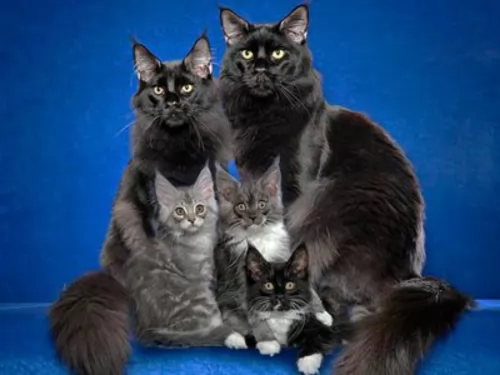 With their short coats, they only need to be brushed once a week as they are moderate shedders.
With their short coats, they only need to be brushed once a week as they are moderate shedders.
Provide your cat with a quiet place to sleep and which is comfortable and dry.
A cat tree can be useful for allowing your cat to climb and scratch.
Chausies are essentially meat-eaters. They don’t want to eat fruit and nuts. One of the Chausie’s ancestors was a wild cat and this is why they don’t eat the same foods as what your dog does.
Every cat thrives on a high-protein, low-carbohydrate diet. A dog’s diet with scraps from the table as well as human food can be fatal for your Chausie if it becomes your cat’s regular food.
He requires a diet of quality meat – beef, chicken, fish and organs – all foods that are easily digestible for your cat. Cats also need taurine from muscle meat such as shellfish and fish.
Always make sure your Chausie has access to a constant supply of fresh, cool water.
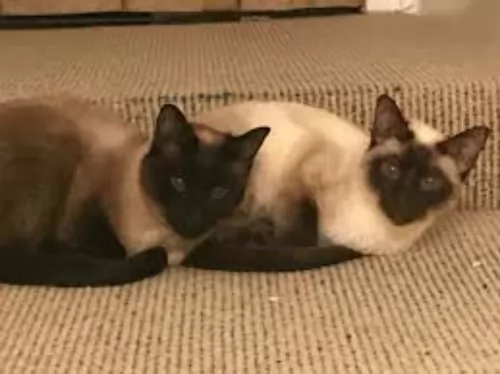 To care for your Traditional Siamese, you need to feed him a high protein diet. Always read the labels of the cat food you buy to ensure that the proteins included come from animal sources and not from plants.
To care for your Traditional Siamese, you need to feed him a high protein diet. Always read the labels of the cat food you buy to ensure that the proteins included come from animal sources and not from plants.
Brush your Traditional Siamese cat regularly. He has a short coat so once a week will be enough to keep it shiny and clean.
You can feed your cat and provide all he needs, but nothing will be more important to your cat than showing your love for him by spending lots of time with him and showering him with love.